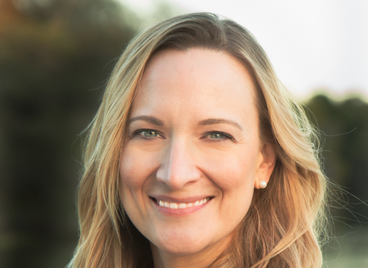Doing Well by Doing Good: Embedding Sustainability
 Name: Renee McKeon
Name: Renee McKeon
Title: Vice President, CSR and Sustainability, Corporate Services
Segment: Corporate Services, North America
Years with Sodexo: 4
Areas of expertise: Sustainability, CSR
A sustainability leader, Renee McKeon helps Corporate Services align with Sodexo’s Better Tomorrow commitments. Specifically, she works with operators to embed sustainability in on-site foodservice and facilities operations. Here, she talks food waste reduction, plant-based eating and the next frontier of corporate sustainability.
Interviewer: What makes you passionate about CSR and sustainability work?
Renee McKeon: I came from the non-profit sector before joining Sodexo and have worked on creating positive social and environmental outcomes for 20 years. I believe that businesses have immense power to shift markets, bring better products to market and influence consumer behavior, and should use that power to do well by doing good. I wanted to join a company that shared those values and would enable me to continue to push the envelope and drive that change we so urgently need right now.
Interviewer: What has been the most satisfying or impactful CSR project you've worked on?
Renee McKeon: That’s an easy one — I am most energized when working at the intersection of food, climate, the environment and livelihoods. And for the past 18 months I have had the opportunity to lead a regenerative agriculture sourcing initiative for The Good Eating Company (GEC). GEC made a bold commitment to allocate 15% of its food budget to food produced using regenerative practices. Right now, they are sourcing amazing products from BIPOC farmers in Northern California and serving them in about eight cafes in the Bay Area. We have some amazing partners and clients taking part in this. And I am excited about replicating that approach in other regions where GEC operates and weaving regenerative agriculture tightly into Sodexo’s sustainability and responsible sourcing strategy.
Interviewer: How can Sodexo’s Better Tomorrow commitments help our clients reach their sustainability goals?
Renee McKeon: In many cases, our sustainability goals are well aligned with our clients’ goals; we depend on each other to collaborate closely to advance on them together. With shared values and objectives, we can deliver foodservice and facilities management services for our clients that help them reduce emissions, bring down energy and water use and reduce waste. These are all concerns that are top of mind for businesses and corporations — along with important social issues, such as DE&I and employee wellbeing. Partnership is critical to work in tandem and make progress on the shared vision our companies have for building a better future.
Interviewer: Why is the move to a more plant-based menu so critical to the company’s CSR & Sustainability goals?
Renee McKeon: As a company, Sodexo has a commitment to hit 33% plant-based entrees on menus by 2025. And some segments and brands, like The Good Eating Company, are aiming even higher: they have set a goal to offer 50% plant-based entrees by 2025. This is critical for our sustainability goals because of our total GHG emissions, roughly half come from our supply chain. And much of that, in turn, comes from the purchase of animal proteins. Reaching our ambitious carbon reduction targets hinges in part on more climate smart menus and sustainable diets. Importantly, putting fruits, vegetables and whole grains front and center can also lead to healthier, happier and more productive consumers. Something that brings wellbeing for people and the planet is hard to argue with.
Interviewer: Looking ahead, where do you see the next big shift in sustainability?
Renee McKeon: A couple things I am watching closely are the growth in reuse models that can help reduce single-use packaging and the investment in and rise of regenerative agriculture.
On packaging, we are starting to see legislation in states like California and New York that places restrictions and bans on to-go cutlery and single-use packaging for foodservice. And this will only continue to expand to other areas of the U.S. In environments that are more “grab and go,” can a more circular approach be taken with returnable wares? I am happy to see more and more clients expressing interest in this topic and am impressed by some pioneers out there making waves, like Just Salad and Cano.
Like the old milkman style approach to reusable packaging — regenerative agriculture is another example of everything old becoming new again. These farming practices are based on ancient and indigenous wisdom and have great promise for improving soil health, ecosystems and local livelihoods. The movement is still defining itself, the market is growing rapidly and consumers are gaining more awareness of it. We are early on our journey – and it's an exciting time to be working in this space.